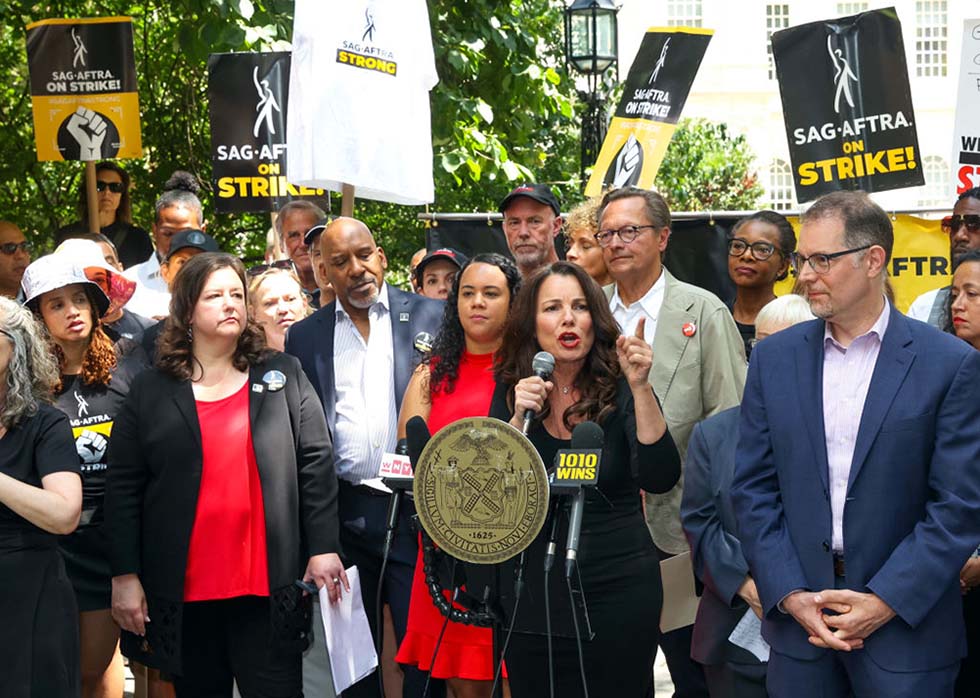
As the strikes by the writers and actors unions pass 100 days, viewers support the strikers and are ready to adjust their viewing habits when the supply of scripted programming runs out, according to a survey by Horizon Media.
In its Tipping Point study, Horizon found that the public is more aware and invested in the Hollywood labor dispute than in other strikes.
Among those surveyed, 45% said they supported the striking Writers Guild of America and 39% said they supported actors union SAG-AFTRA. Just 9% backed the studios, 8% favored the networks and 9% supported the streaming services.
Also Read: Producers and Writers Are Finally Sitting Down To Talk
Horizon’s analysis also found that the raised fist emoji has been used more than 53,000 times in social media as a sign of support for the striking writers and actors.
Viewers said they will make alternate content choices if episodes of their favorite shows do not arrive on schedule this fall.
While waiting for the strikes to settle, 47% of those surveyed said they’d rewatch old shows, 35% they would find shows and movies on other streaming services they subscribe to, 28% said they would spend more time on other non-entertainment hobbies and 25% said they’d try new genres of entertainment.
Horizon found that only 15% said they would cancel a streaming service if it ran out of new content because of the strike. But viewers aged 35 to 49 indicated more of a willingness to subscribe to a new platform for new-to-them content, while younger viewers said they were more likely to pause subscriptions and spent more time watching social media content. People over 50 years old were likely not to change their media habits.
When asked if they would be willing to pay more if streaming prices were to go up to meet the demands of striking writers and actors, about 28% of total respondents said “yes.” That number increases to 38% for those who support the strikers. Horizon found that for younger viewers 18-25 and 26-34, the percentages increase to 46% and 41% respectively.
The numbers do not suggest an overwhelming willingness to pay out of pocket to solve an issue people largely see as the responsibility of the businesses, the agency said.
“Unlike past strikes, people are not only invested in the WGA and SAG-AFTRA strikes, the Tipping Point study also reveals that going forward they are willing to alter their viewing habits in a major way,” Maxine Gurevich, senior VP, cultural intelligence at Horizon’s WHY research unit, said. “Given these findings, the next few months will be critical in working to find a swift resolution to the strike, as well as ensuring content libraries are smarter and even more accessible.”
The study had 600 respondents in the U.S. and was conducted on July 18 and 19.







